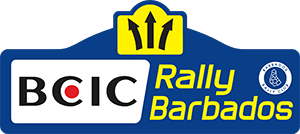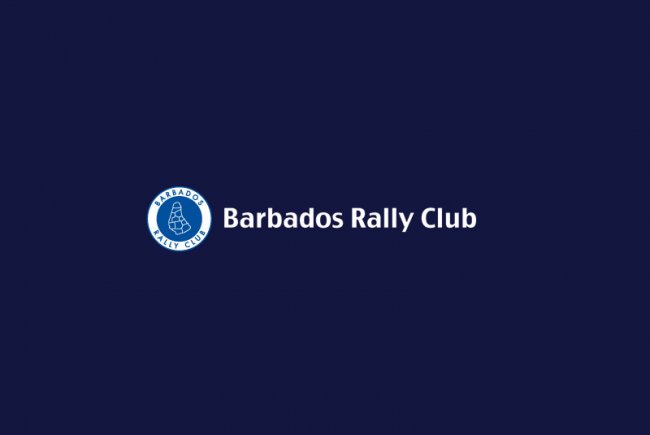
RALLY CLUB VOTES IN NEW VEHICLE REGULATIONS
Clubman classes revised to sustain entry-level participation
The Barbados Rally Club’s (BRC) revised Vehicle Regulations for the next three-year cycle, from 2019 to 2021, were approved by the membership at an Extraordinary General Meeting last evening (Thursday). The EGM, held at the Barbados Clay Target Shooting Association (BCTSA) Clubhouse, Searles, Christ Church, followed an earlier open meeting of the membership in April, at which the Club’s Committee of Management (CoM) presented proposals from its new Regulations Discussion Group.
The Group started work at the end of last year, charged with making recommendations to the CoM in time for the new cycle of regulations to be confirmed well in advance of the start of next season. Chaired by Rhett Watson, who was voted on to the CoM at this year’s AGM, the Group comprised Edward Corbin, Derek Edwards, BRC Vehicle Classification Officer Adrian Linton, Roger Mayers, Roger Skeete, Geoff Ullyett and Stuart White, while other interested parties were sounded out for their views during the consultation process.
Watson said: “The intention of the Group was to set the direction of the regulations going forward and to align the BRC technical regs closer to those of the MSA and FIA, the UK and world governing bodies. This has been done with the long-term in mind, looking ahead to closer alignment from 2022 onwards.”
BRC Chairman Mark Hamilton said: “It is clear that the entire process adopted this year to review the Regulations, provide recommendations to the CoM, and have open communication between everyone leading up to the EGM has worked very well. The decision to implement a Discussion Group comprised of knowledgeable competitors, with representation across the Club’s various vehicle classifications has, in my view, allowed for our competing members to be heard, while at the same time maintaining the underlying structure of the regulations, which has served the club well for many years.
“These regulations are what the sport will be built on for the coming period 2019 to 2021 and therefore are of vital importance, given their influence on the plans of local, regional and international competitors. I would like to thank all of those who have given their time to make the process work in such a timely fashion. Well done everyone.”
In the four-wheel-drive classes, WRC will now include pre-2009 World Rally Cars, R5 and S2000, Group A is renamed Modified 4, catering for GpA, R4 & B13, pre-1990 FIA homologated GpA and pre-2001 FIA homologated WRC cars, and Group N remains as before. SuperModified will now run as two classes (up to 1600cc, 1601cc and over), while a third Modified class will cater for cars of 2001cc and over, which will accommodate some cars from SM3.
The biggest detail changes come in the Clubman classes, which have grown steadily in popularity during the current three-year cycle. To maintain them as entry-level classes and keep them as close to standard production cars as possible, some freedoms previously allowed have been reined in – the use of lightweight panels, for example, and engine swaps outside those originally available for the specific model – while new wear-rate regulations will encourage the use of standard road tyres. In addition, a third Clubman class will be introduced, for cars of 2000-3000cc, divided by weight at 2500cc, above which multi-valve engines will not be not permitted.
Speaking specifically to the Clubman class changes, Linton said: “As entry-level classes, it is important to maintain Clubman as close to standard production cars as we can, apart from safety requirements, a bit of strengthening here and there and some suspension mods. Most of the guys in these classes have not taken much advantage of the freedoms that existed, anyway, so to get back to where we want to be should not present them with any major issues. To sustain growth in competitor numbers, it is important to have an entry-level class that is cost-effective, yet fun and competitive and I think the Regulations Discussion Group has achieved that.”
Full details of the new regulations will be available shortly as a PDF download on both the Club (www.barbadosrallyclub.com) and Sol Rally Barbados (www.rallybarbados.net) web sites.
Barbados Rally Club Vehicle Regulations 2019-21 – at-a-glance:
WRC – revised to cater for pre-2009 WRC, R5 and S2000 cars Modified 4 – previously Group A, now catering for GpA, R4 & B13, also for pre-1990 FIA homologated GpA and pre-2001 FIA homologated WRC cars Group N - as before SuperModified 1 - up to 1600cc, as before; SM2 – 1601cc and over. In addition, supercharged and turbocharged engines will now be allowed, with a factor of 1.7 applied to cc to determine weight
M1 - up to 1600cc, as before; M2 – 1601-2000cc, as before; M3 – a new class, catering for 2001cc and over Historic 1 - up to 1600cc, as before; H2 – 1601cc and over, as before Clubman 1 - up to 1600cc, as before with weight changes; C2 – 1601-2000cc, as before with weight changes; C3 – a new class catering for cars of 2001-3000cc, divided by weight at 2500cc, above which multi-valve engines are not permitted GpB - as before; these cars remain eligible for class awards only


